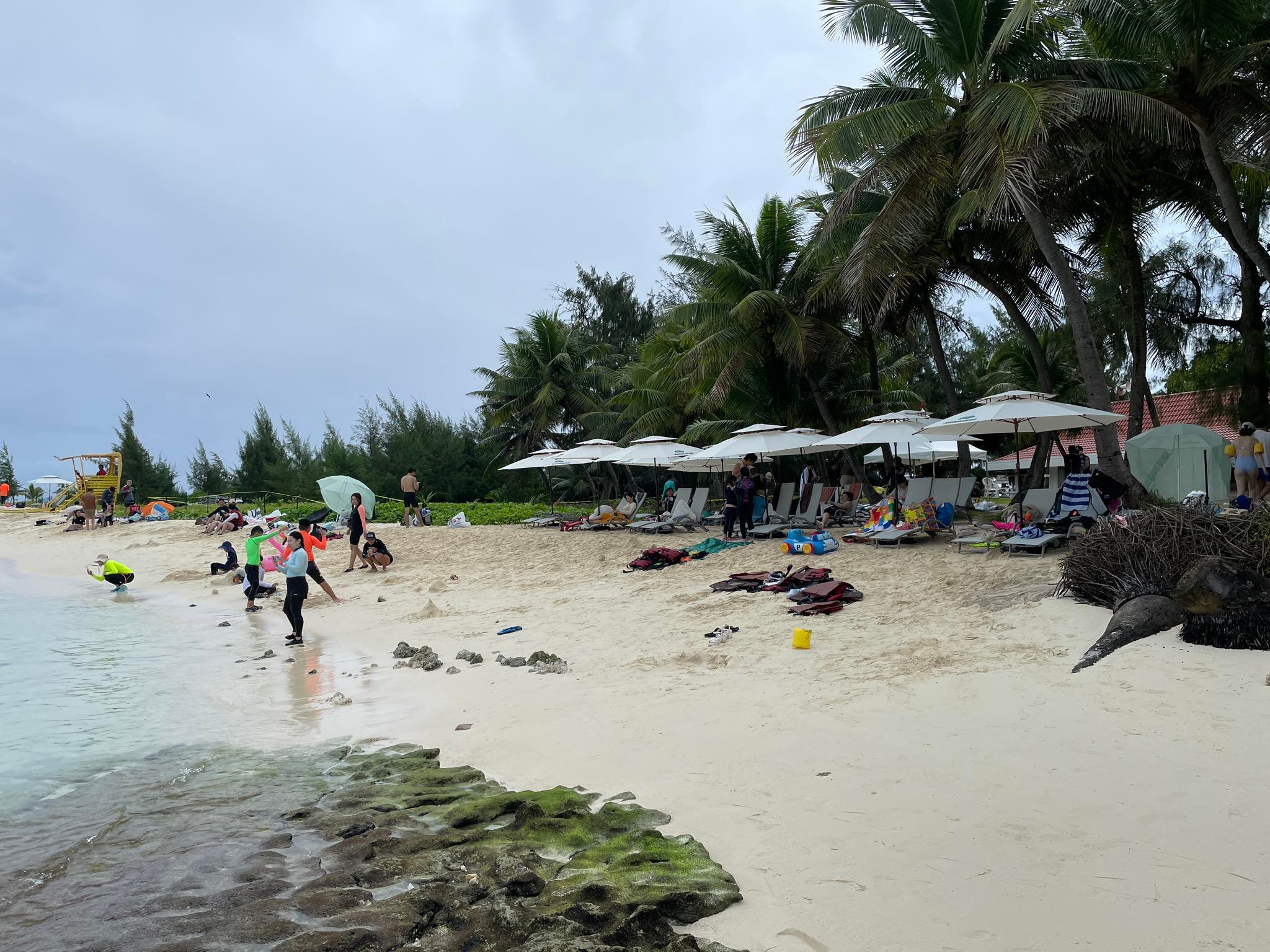DHS upholds CNMI’s discretionary parole program
The U.S Department of Homeland Security has responded to the letter it received from U.S. lawmakers—which essentially sought the revocation of the CNMI’s discretionary parole by asking DHS to mandate visa requirements across all territories—and ultimately upheld the program.
Back in November 2023, a group of U.S. lawmakers banded together to ask the U.S. DHS to mandate visa requirements across all territories which would’ve essentially revoked the CNMI’s discretionary parole program.
Back in 2019, DHS authorized a discretionary parole program for the CNMI only, which essentially allows Chinese tourists to visit the CNMI for two weeks without having to obtain a non-immigrant visa.
Last week, DHS assistant secretary for Legislative Affairs Zephranie Buetow responded to the letter upholding the law that created the discretionary parole program in the first place; Public Law 110-229, the Consolidated Natural Resources Act of 2008, or the CNRA.
“A foreign citizen generally must obtain a visa to enter the United States, including its territories. However, Public Law 110-229, the Consolidated Natural Resources Act of 2008 (CNRA), established the Guam-Commonwealth of the Northern Mariana Islands (CNMI) Visa Waiver Program codified at Immigration and Nationality Act § 212(l).
Specifically, DHS notes that under the CNRA, DHS was required to identify countries that benefitted the CNMI economically and whatever country met the threshold, the CNRA authorizes nationals from said countries to travel to the CNMI without a visa. The People’s Republic of China, which makes up 40% of the CNMI’s tourist market, met the threshold.
“The CNRA requires DHS to identify countries from which the CNMI receives a ‘significant economic benefit’ from the number of visitors for pleasure within the year preceding enactment. The department determined the People’s Republic of China met this economic threshold in 2009. Pursuant to the authority under the CNRA, as of Oct. 3, 2019, PRC nationals may travel to the CNMI without a visa for the purpose of a temporary visit for business or pleasure for up to 14 days; they are not authorized for employment. Individuals without a visa are not authorized to travel to other parts of the United States, including Guam,” said Buetow.
Buetow assured the lawmakers that when these individuals are encountered at CNMI airports, U.S. Customs and Border Protection prohibit their onward travel to other U.S. destinations.
“DHS remains vigilant in its screening and vetting duties, which focus on rooting out exploitation of our immigrant and nonimmigrant visa processes, including by identifying, and where necessary denying entry to, high-risk travelers. DHS respectfully defers to the Department of State for any questions or concerns regarding B-1 or B-2 visa issuance,” she said.
Back in November 2023, U.S lawmakers wrote a letter to DHS Secretary Alejandro Mayorkas addressing concerns about the United States’ visa policy for Chinese nationals entering the CNMI.
The lawmakers were U.S. Reps. James Moylan, Neal Dunn, Thomas Tiffany, W. Gregory Teube, Chris Smith, Randy Weber, Aumua Amata Coleman Radewagen, Guy Reschenthaler, Joe Wilson, Ronny Jackson, Andy Barrm Mike Ezell, Mike Gallagher, Michael Waltz, Blaine Luetkemeyer, John Moolenaar, Harriet Hageman, Ben Cline, Doug LaMalfa, Clay Higgins, Jim Baird, Jake LaTurner, John Rose, Ralph Norman, Michael McCaul, and Dan Newhouse, and Sens. Joni Ernst and Marco Rubio
“According to the U.S Department of State, a citizen of a foreign country who wishes to enter the United States must first obtain a visa, either a non-immigrant visa for a temporary stay, or an immigrant visa for permanent residence. Visitor visas are non-immigrant visas for persons who want to enter the United States temporarily for business (visa category B-1), for tourism (visa category B-2), or for a combination of both purposes (B-1/B-2). Currently, certain Chinese nationals are not required to obtain a B-1/B-2 visa to visit the CNMI—even though the islands are a United States territory. The CNMI is the only United States territory into which Chinese nationals can enter without a visa. Under the current requirements, Chinese national must meet extremely low standards in order to be granted entry into the CNMI from China. While specific details of this arrangement remain hidden from the public, it has been reported that individuals must only have a Chinese passport that is valid for six months after the intended stay, as well as be able to prove one’s intent to depart from the island within the 14-day window,” the letter stated.
To address these concerns, U.S. lawmakers have asked DHS to change this policy and apply visa requirements equally across territories.
“We encourage the U.S. Department of Homeland Security to change this policy and apply the visa requirements equally across territories. It is imperative we deter Chinese Communist Party aggression, espionage, and transnational repression. We strongly urge the implementation of a requirement to obtain a B-1/B-2 visa to enter the CNMI from China, putting the territory in line with this basic requirement enforced throughout the rest of the United States to ensure the safety of the homeland as a whole,” the letter added.
The lawmakers claim that the CNMI’s current policy on Chinese tourists has made the islands vulnerable to problems, including drug trafficking, illegal immigration, and organized crime.

Chinese tourists frequented Managaha Island when they came in record numbers before the COVID-19 pandemic.
-CONTRIBUTED PHOTO






